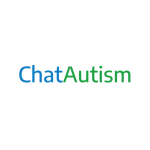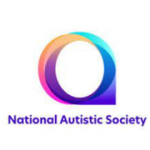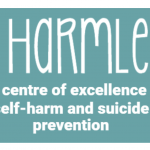Sometimes people can call this behaviour ‘self-injurious‘, which is when the intention to cause harm is not deliberate.
Some examples may include:
- Biting
- Hitting
- Head banging
- Excessive scratching/picking
- Cutting
- Drinking alcohol or eating excessively
Self-harm is something that can be a challenge for anyone, however the National Autistic Society (NAS) highlight the following:
- autistic people are more likely to self-harm than non-autistic people
- autistic women are more likely to self-harm than autistic men
What are the reasons?
The reasons and types of self-harm vary from person to person. NAS highlights some of the main reasons that autistic people might self-harm can include:
- Mental health difficulties such as anxiety, depression and or OCD
- Social communication and interaction difficulties
- Sensory difficulties
- Executive function difficulties- which is the ability to manage and prioritise daily tasks
- Difficulties recognising, understanding, and regulating emotions
- Repetitive behaviour- self harming/injuring as an obsession or routine
Self-harm carries significant risks to your physical and emotional wellbeing. If you are self-harming or have thoughts about harming yourself, it is important to seek professional support and treatment as early as possible, such as speaking to your GP.
For more information on what to do, please see our advice on ‘What to do in a mental health emergency or crisis‘ as well as the links at the bottom of this page.
Things you can do
There is not one specific strategy that would work for all autistic people that self-harm, however, here are some possible tools that might help:
- Complete a diary of the behaviours. What, when and where does it happen? It can help to see any patterns or specific triggers that lead up to the behaviour; for instance is it at a similar time of day? This can help you understand the purpose of the behaviour
- If you can, try to talk to trusted friends or family members
- This can be difficult to discuss with people you know so you might prefer to access a support service anonymously or an app such as Calm Harm which provides immediate activities and techniques to help you break the cycle of self-harm
- Learn strategies to self soothe and manage emotions in non-harmful ways, such as taking time to stop, pause, breathe and to recognise what emotion you are feeling in the moment
- Seek support for mental health and anxiety
- NAS suggests building up the gaps between the self-harm behaviours (recognising that all self-harm can be a risk to your physical health)
Further support on Autism Space
For a directory of support services for emergency, urgent and non-urgent emotional health support – including resources related to self harm – please click the following link:
Autism Space emotional health resources directory
For additional information related to emotional health and wellbeing, click the following links:
- Understanding safeguarding
- What to do in a mental health emergency or crisis
- How to avoid a mental health crisis
- Your mental health and emotional wellbeing guide
_____________________________________________________________________
If you or someone else is at immediate risk of serious harm or danger, for any reason, including their mental health, you must contact the emergency services
You can either phone 999 or get the person at risk to an accident and emergency (A&E) department at a hospital
- Not all hospitals have A&E, so check first if you are not sure
- If you can’t do this by yourself, ask someone to help you
___________________________________________________________________
If it’s not an immediate emergency but you have urgent mental health concerns, you can call NHS 111 and press option 2
- You will be put through to a qualified call handler, who will be able to give you the advice and support you need.
- This service is totally free and confidential and operates 24 hours a day, seven days a week
- It is for all ages – so you can call this number if you are a parent or carer and need urgent mental health advice and support for a child or young person.
- Alternatively, you can visit https://111.nhs.uk/and follow the on screen instructions. This service is also staffed by the same qualified call handlers. It operates 24 hours a day, seven days a week and is free and confidential
Please note however that the NHS 111 service does not deal with emergencies.
Where there is an immediate, serious and life-threatening emergency, you must call 999 or attend A and E





